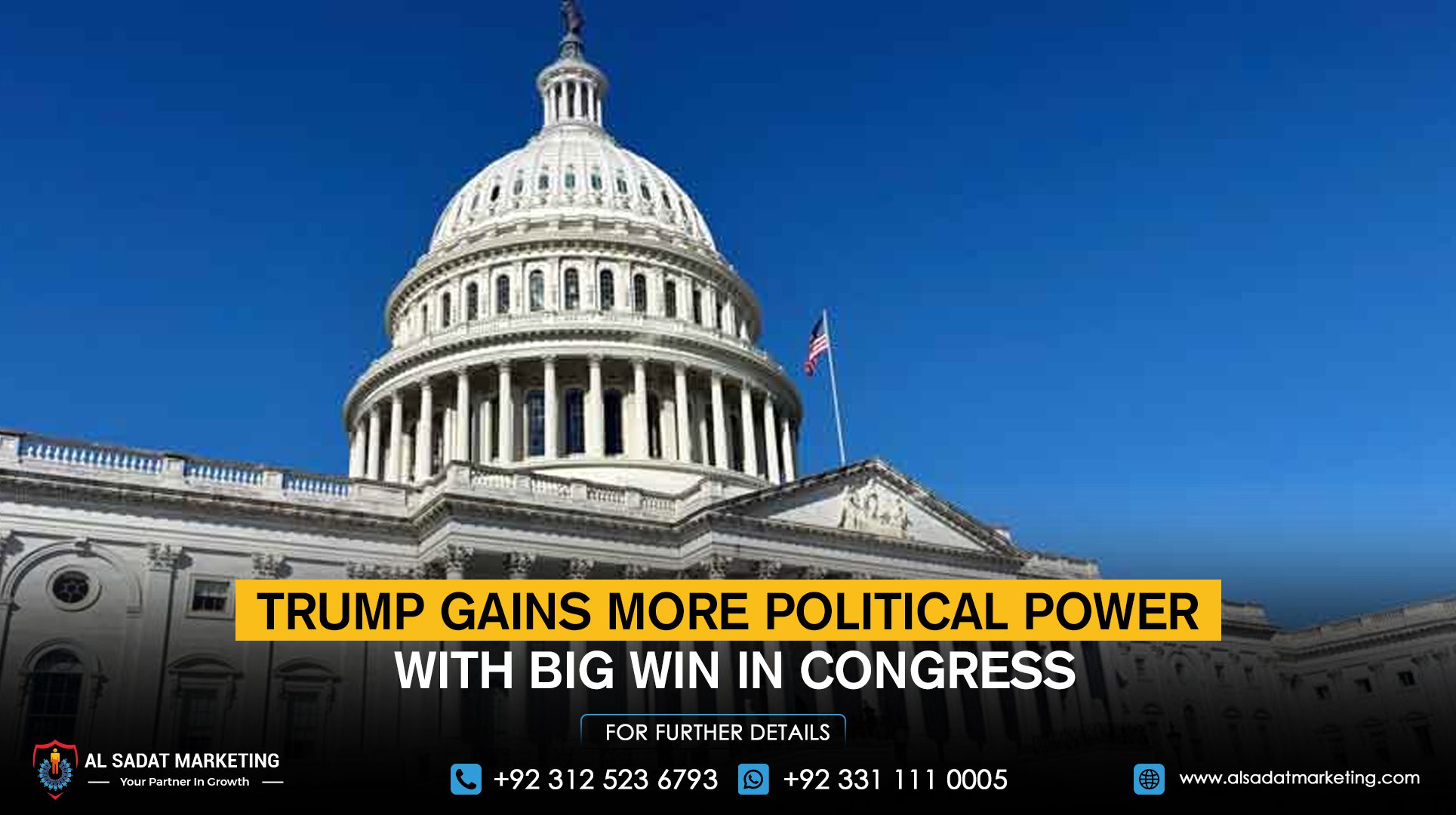In an attempt to sway Congress, U.S. President Donald Trump used a combination of charm, threats, presents, and yelling frustration to get his flagship funding plan passed.
Ultimately, following days of tremendous pressure from the White House behind the scenes, Congress was unable to hold up against a president at the height of his authority.
The House of Representatives passed Trump’s comprehensive tax-cut and spending plan Thursday, giving him the largest legislative win of his second term in office. The bill will now be delivered to the Republican president for signature by Friday’s Independence Day holiday, as he has set a timetable.
The bill will provide Trump with billions of dollars and new legal tools to advance his domestic agenda, which includes reducing taxes and increasing the number of migrant deportations while rescinding food and health benefits.
In his first five months in office, Trump has gradually gained the support of prominent American institutions, including the Supreme Court, law firms, universities, media outlets, and more. By narrowly passing Trump’s self-proclaimed “big, beautiful bill,” Congress also gave the president a win that will increase his authority.
“There’s no doubt that it’s a capstone to what has been a very strong last few weeks for President Trump,” said Lanhee Chen, a former advisor to Republicans Mitt Romney and Marco Rubio and a fellow at the Hoover Institution, a think tank.
Republican lawmakers went against their personal concerns about whether the bill’s benefit cuts would shorten the lives of their constituents or their own political futures, as well as the concerns of bond markets regarding the U.S. debt and their nonpartisan budget office and Senate parliamentarian, mega-donor Elon Musk.
Many Republicans argue that this prognosis ignores future economic growth from company tax cuts, as nonpartisan forecasters estimate the law will add $3.4 trillion to the nation’s $36.2 trillion in debt.
According to recent research by the impartial Pew Research Center, only 29% of Americans support the law, while 49% are against it. Majorities, according to Pew, were worried that the bill would increase the budget deficit and harm those with lower incomes while helping the rich.
The White House denied the polling findings, claiming that certain key sections of the law had received strong approval in nationwide internal surveys.
Republican supporters do want Trump to govern with minimal legislative intervention. According to a June Reuters/Ipsos poll, 64% of Republicans believed that the nation needed a strong president who could rule without excessive intervention from the courts or Congress. Among Democrats, only 13% agreed.
“It’s the rare piece of legislation that can both at the same time be a big victory for one side but also present some political traps for that same victorious side,” Chen stated.
GOLF, GIFTS, AND GOADING
Small groups of Republican senators and members of the House visited Trump’s golf course in Sterling, Virginia, or the Oval Office in recent days.
According to those acquainted with the outreach, he distributed branded products and urged them not to give Democrats the satisfaction of defeating Trump. He expressed his annoyance at the prospect of Republicans splitting ranks both in private and in public.
As the bill failed to secure enough votes to overcome a procedural obstacle, Trump wrote on Truth Social after midnight Thursday, “FOR REPUBLICANS, THIS SHOULD BE AN EASY YES VOTE.” “FUNNY!!!”
Following Thursday’s final vote, a senior White House official told reporters that Trump was heavily involved in the legislation’s creation, reviewing it line-by-line with Treasury Secretary Scott Bessent and working through “endless” late-night phone calls with members of Congress.
In the run-up to the vote, Trump began making phone calls at 5:30 a.m. on Thursday, according to the person, using connections he had made in the White House and at his Palm Beach, Florida, residence and at dinners.
In the end, just two Republicans in the House joined Democrats in opposing the plan.
Democratic strategist Hyma Moore stated that since Trump is a term-limited president, he will not suffer significant electoral consequences for advancing an unpopular law. But the repercussions might be felt by Republicans who want to run for office in the future.
The 2026 midterm elections, when Democrats aim to capitalize on voters’ long-standing propensity to give the opposition party greater control of Congress, will undoubtedly feature significant cuts to Medicaid and food assistance as well as an increase in the national debt.
Following their disagreements with Trump, two Republicans, Representative Don Bacon of Nebraska and Senator Thom Tillis of North Carolina, have already announced their retirements in recent days, which may make it simpler for Democrats to win their seats.
In reference to Trump, Moore stated, “He’s a lame duck; there’s not much of a price he can pay at this point.” “As the primaries take shape, there will be more GOP (Republican) internal strife.”
The package they recently enacted would allow Trump to govern with even more freedom while Republican lawmakers in difficult districts struggle to retain their seats.










